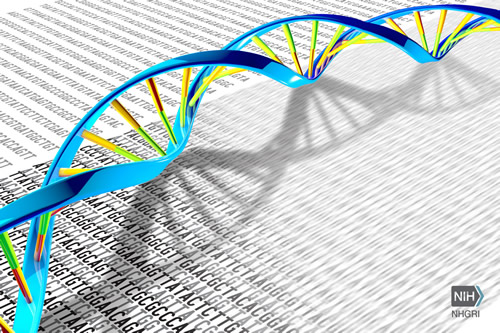
Microsoft and the Jackson Laboratory (JAX) have collaborated to curate JAX’s Clinical Knowledgebase (CKB), a searchable database where subject matter experts store, sort, and interpret complex genomic and other data that can be used to improve patient outcomes. While the CKB is useful on its own, it is still a challenge to find, for example, the most relevant cancer-related information from the 4,000 or so biomedical research papers published each day, according to Susan Mockus, the associate director of Clinical Genomic Market Development with JAX’s Genomic Medicine Institute in Farmington, CT.
As a result, Mockus and her colleagues at JAX are collaborating with computer scientists working on Microsoft’s Project Hanover to develop AI technology that enables machines to read complex medical and research documents and highlight the important information they contain. “Because there is so much data and so many complexities, without embracing and incorporating artificial intelligence and machine learning to help in the interpretation of the data, progress will be slow,” she said.
With 17 million new cancer diagnoses each year globally—and more patients opting into tumor molecular profiling—there’s a growing opportunity to apply precision medicine to cancer treatment. However, it’s not practical to get each case in front of a tumor board to get help identifying the most applicable treatment. CKB can be used for this, and since it launched in 2016, the database has been used by more than 70,000 unique users from 149 countries.
The core of Microsoft’s Project Hanover is the capability to comb through the thousands of documents published each day in the biomedical literature and flag and rank all that are potentially relevant to cancer, for example, highlighting information on gene, mutation, drug and patient response. Human curators working on CKB can then focus on the flagged research papers, validating the accuracy of the highlighted information.
This machine reading technology is still in the early stages of development, but researchers have found they can make progress by narrowing the focus to specific areas, said Peter Lee, corporate vice president of Microsoft Healthcare in Redmond, Washington.
“For something that really matters like cancer treatment where there are thousands of new research papers being published every day, we actually have a shot at having the machine read them all and help a board of cancer specialists answer questions about the latest research,” he said. The new technology unearths cancer treatment options from millions of research trials, helping physicians recommend more personalized treatments to cancer patients.
CKB stores structured information about genomic mutations that drive cancer, drugs that target cancer genes and the response of patients to those drugs. One application of this knowledgebase allows oncologists to discover what, if any, matches exist between a patient’s known cancer-related genomic mutations and drugs that target them as they explore and weigh options for treatment, including enrollment in clinical trials for drugs in development. This information is also useful to translational and clinical researchers, Mockus noted.
“What you want is some degree of intelligence incorporated into the system that can go out and not just be efficient, but also be effective and relevant in terms of how it can filter information. That is what Hanover has done,” said Auro Nair, executive vice president of JAX.












